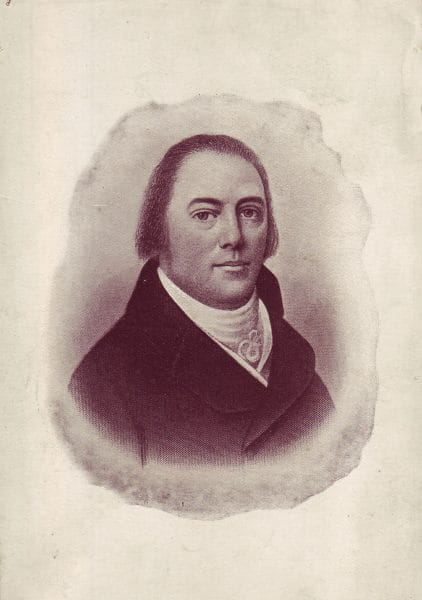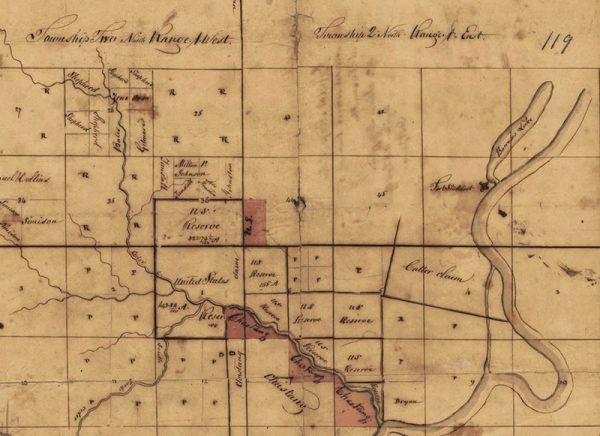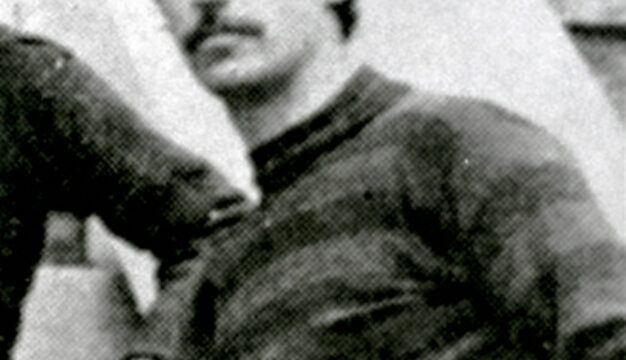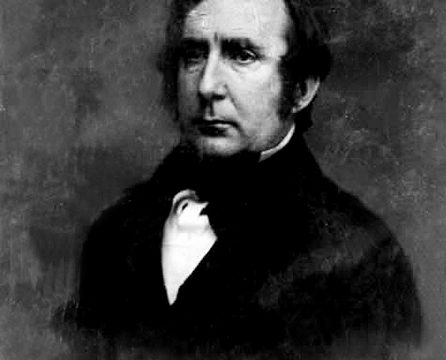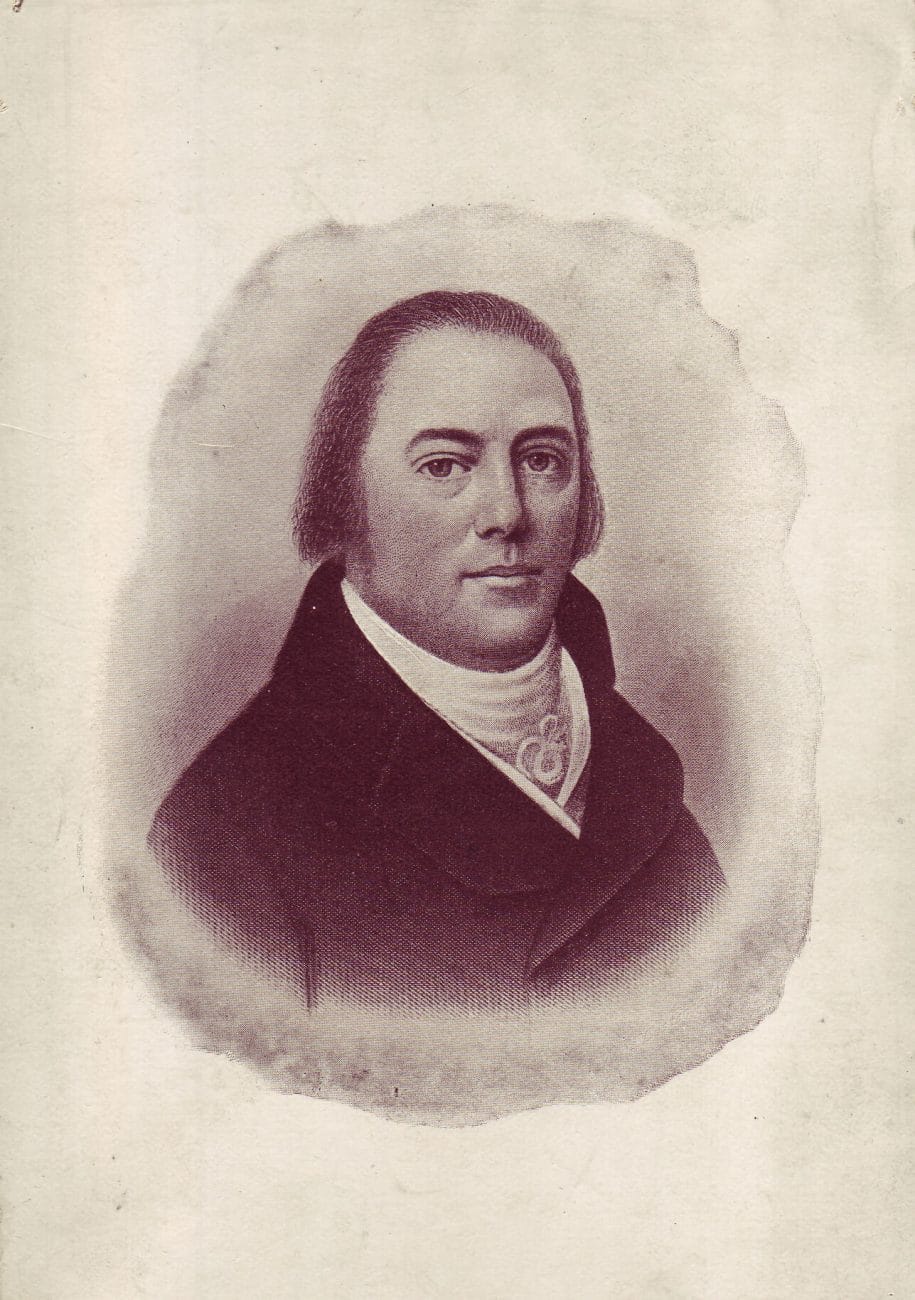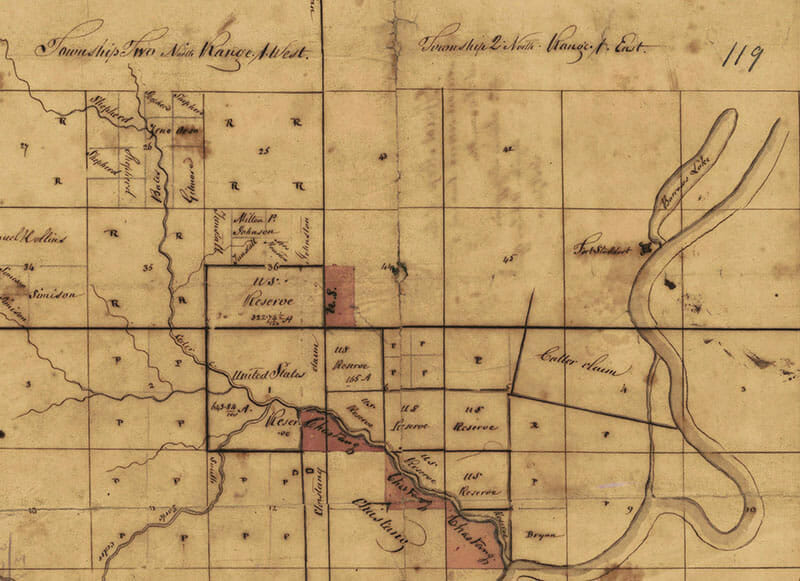Ephraim Kirby
A veteran of the Revolutionary War, Ephraim Kirby (1757-1804) is perhaps best known for compiling the first published volume of law reports in the United States, for the state of Connecticut. He also served on the board of commissioners overseeing land disputes in the Mississippi Territory and was the first U.S. Superior Court judge to hold office in the Mississippi Territory, which encompassed present-day Alabama. He was offered the governorship of the Mississippi Territory but died before he was able to assume the office.
Kirby was born on February 23, 1757, in Litchfield, in the Connecticut Colony, to Abraham Kirby, a farmer of moderate means, and Eunice Starkweather. He was the eldest of nine children who lived past infancy. Two months after his eighteenth birthday, he volunteered to fight in the Revolutionary War. Kirby served in the colonial Connecticut cavalry and participated in a number of battles, including Bunker Hill in Boston, and was wounded 13 times during his service. (Most of these were saber cuts which occurred in a single incident when he was left for dead.) He rose to the rank of lieutenant colonel. Upon his return to Connecticut, he married Ruth Marvin. The couple would have eight children.
Kirby studied law at Yale University, practiced law in Litchfield, and served in the Connecticut legislature. In response to a law passed by the legislature that required Connecticut judges to issue written decisions, Kirby devoted several years to expanding his personal compilation of cases. Lacking the money necessary for printing costs, he persuaded lawmakers to appropriate funds to him in exchange for 350 copies of the completed compilation. Published in 1789, Kirby’s Reports, or Reports of Cases Adjudged in the Superior Court of the State of Connecticut, from the year 1785, to May, 1788, with some Determinations in the Supreme Court of Errors, was the first compilation of state court cases to be published in the United States and is considered by legal historians to be a significant development in American law. In 1933, a second volume of Reports was published that included case reports discovered in Kirby's law library following his death.
In 1803, Pres. Thomas Jefferson appointed Kirby to the Board of Land Commissioners, a body tasked with adjudicating land claims made by private citizens while the region was under British or Spanish control. Following months of difficult travel from Connecticut to the Mississippi Territory, Kirby arrived at Fort Stoddert, the U.S. military installation located some 30 miles north of Mobile, where the newly created federal administrative offices were located. While there, Kirby worked with a second commissioner also appointed by Jefferson to determine whether land grants made by the Spanish and British were valid. Although his co-commissioner left early, Kirby remained at Fort Stoddert, ruling on the validity of all the claims presented.
During his tenure as land commissioner, Kirby responded to a request by Jefferson to describe the land features and the residents of the Mississippi Territory. Kirby described the majority of residents as “illiterate, wild and savage, of depraved morals, unworthy of public confidence or private esteem; litigious, disunited, and knowing each other, universally distrustful of each other.” He noted that the territory contained fertile land and the Mobile River was a fine navigable river, but Spain’s control over its mouth precluded its commercial use for Americans. Kirby was also concerned about the conditions at Fort Stoddert and wrote to Jefferson on April 7, 1804, imploring him to relocate the federal offices to nearby St. Stephens, present-day Washington County, prior to June, when the fort “annually becomes unhealthy.” In an effort to relocate Kirby to healthier environs and put his legal talent to good use, Jefferson appointed Kirby as the first judge to the U.S. Superior Court for the Mississippi Territory region, a position with offices in a healthier location at St. Stephens. Further, in a December 1804 letter, Jefferson asked Kirby if he would be amenable to an appointment as governor of the Mississippi Territory. Unbeknownst to Jefferson, however, Kirby had already died from yellow fever on October 7, 1804, and was interred at Fort Stoddert in an unmarked grave. An interpretive panel on Kirby is located next to a panel for Fort Stoddert on State Route 96, Old Military Road East, in Mount Vernon, Mobile County, and there is a small monument to Kirby in a nearby cemetery just to the north.
Further Reading
- Briceland, Alan V. “Ephraim Kirby: Pioneer of American Law Reporting, 1789.” American Journal of Legal History 16 (October 1972): 1297-3019.
